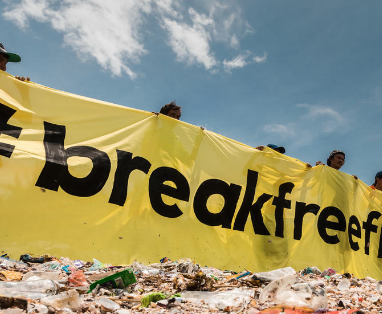New report unveils Philippines’ top plastic polluters

A global report revealed that some of the largest fast moving consumer goods (FMCGs) companies are the top plastic polluters in the Philippines.
The 2021 Brand Audit Report released by the global movement Break Free From Plastic, indicated that Coca-Cola Company, Universal Robina Corporation, Nestlé, Procter & Gamble, and Mondelez International are the top plastic polluters in the country.
Globally, Coca-Cola and PepsiCo ranked as the world’s biggest plastic polluters for the 4th consecutive year. Their products were present in 39 and 35, respectively, out of the 45 countries that were part of this year’s audit.
Other top plastic polluters are Unilever, Nestlé, Procter & Gamble, Mondelēz International, Philip Morris International, Danone, Mars, Inc., and Colgate-Palmolive.
The report said these FMCGs companies buy packaging and other plastic products from manufacturers “supplied with plastic resin from fossil fuel companies.”
“The corporations behind the plastic pollution crisis are also contributing to the climate crisis,” it added.
The movement mobilized some 11,184 volunteers in 45 countries to conduct 440 brand audits across six continents.
A total of 330,493 pieces of plastic pollution were collected and analyzed to identify the companies polluting the most places with the most plastic waste.
The report said the world’s addiction to single-use plastic is a serious contributor to the climate crisis. “If the entire plastic lifecycle were a country, it would be the fifth largest emitter of greenhouse gases in the world.”
Jefferson Chua of Greenpeace Philippines said it is “disappointing” that companies continue to ignore the call for “sustainable practices.”
“It is doubly worrying that these are the same companies that spend millions or billions in an attempt to fool the public through their false claims on ‘plastic neutrality’ and lip-service commitments on combating the climate crisis,” he said.
Chua urged the government to scrutinize the companies’ “false ‘plastic neutrality’ claims, facilitate a just transition to reusable and refillable systems, and hold them accountable for causing environmental and health harms to our most vulnerable communities.”
Radio Veritas Asia (RVA), a media platform of the Catholic Church, aims to share Christ. RVA started in 1969 as a continental Catholic radio station to serve Asian countries in their respective local language, thus earning the tag “the Voice of Asian Christianity.” Responding to the emerging context, RVA embraced media platforms to connect with the global Asian audience via its 21 language websites and various social media platforms.











